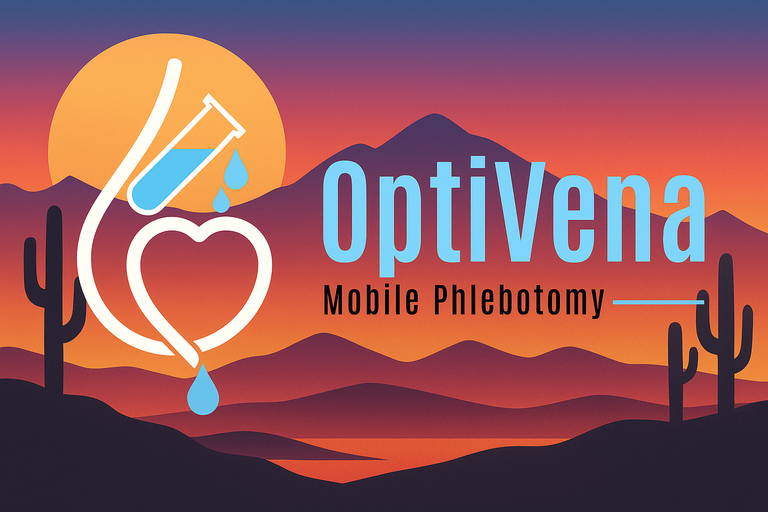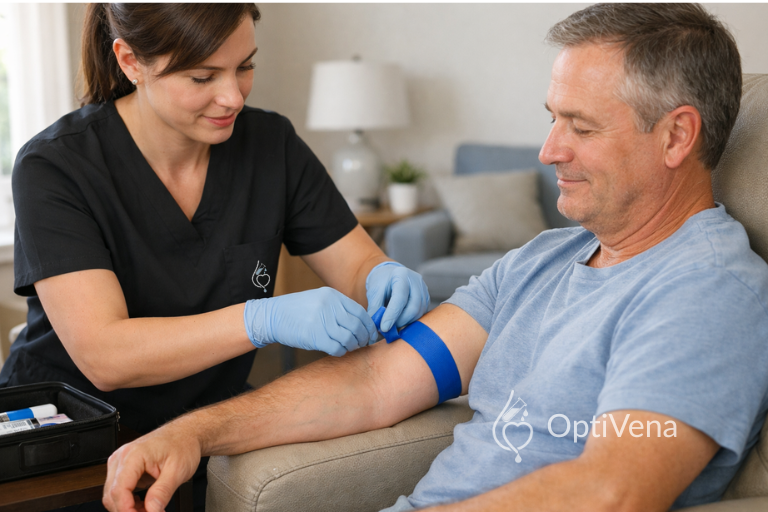Could AI Soon Read Your Blood Work Before Your Doctor Does?

Artificial intelligence is making waves in almost every part of healthcare — from radiology to hospital scheduling — and now it’s beginning to touch the world of lab testing. Imagine a future where your blood test results are scanned by AI first, flagging potential problems before your doctor even opens the chart. While this may sound like science fiction, it’s already in motion. Understanding how AI could transform the way blood work is interpreted can help patients prepare for what’s ahead while also appreciating the value of accurate blood collection today.
The Rise of AI in Medicine
Healthcare has always been slow to adopt new technologies, but AI is changing that at an accelerated pace. Algorithms are now capable of reading X-rays, analyzing CT scans, and even predicting patient outcomes in intensive care units. Lab testing is the next frontier. Every year, millions of Americans get routine blood work, creating enormous databases of information. AI thrives on large data sets, and blood test results are an almost perfect fit.
By analyzing millions of results, AI can begin to notice subtle relationships between markers that a human doctor might miss. For example, a slightly rising ferritin level, combined with small shifts in liver enzymes, could flag potential iron overload disorders before symptoms appear. Or a pattern of low vitamin D paired with high inflammation markers could signal underlying autoimmune conditions. The point isn’t that AI replaces doctors, but rather that it helps them see patterns earlier.
How AI Reads Blood Work
Unlike traditional software, AI doesn’t just compare your results against standard reference ranges. Instead, it uses machine learning to study complex patterns across many variables at once. For instance:
> Trend spotting: AI can look at multiple years of your lab history and see small changes that may build up to something significant.
> Risk prediction: Algorithms can assign probability scores for developing certain diseases, much like a weather forecast for your health.
> Personalization: Because AI works with huge datasets, it can compare you to patients with similar backgrounds, lifestyles, and lab histories, creating a more tailored picture.
Current studies are already exploring AI’s ability to detect early diabetes, cardiovascular disease, and even certain cancers using only lab data. These advances could mean earlier treatment, fewer surprises, and better overall outcomes.
Limitations of AI
While the future looks promising, AI in lab testing isn’t perfect. Algorithms are only as good as the data they’re trained on. If the data comes mostly from one population, it may not apply well to others. There’s also the issue of transparency: many AI tools are “black boxes,” meaning even the creators can’t fully explain why the system reached a certain conclusion. Doctors will still need to validate any AI-driven insights before applying them to real patients.
Another challenge is accountability. If AI flags a result incorrectly, who takes responsibility — the software company, the lab, or the doctor? For now, AI is used as a supportive tool rather than a replacement. The human element remains essential.
What This Means for Patients
For patients, the promise of AI in lab work is quicker answers and potentially earlier diagnoses. This could reduce the anxiety of waiting days for results and help prevent serious conditions from slipping through the cracks. AI might even one day deliver preliminary summaries directly to your phone app, helping you understand your labs in plain language before your provider follows up.
But no matter how advanced AI becomes, one step will never change: someone still has to draw the blood. A poorly collected or mislabeled specimen can lead to inaccurate results, rendering even the smartest AI useless. That’s why the human side of phlebotomy remains the most critical starting point.
The Human Side of Lab Work
At OptiVena Mobile Phlebotomy, we specialize in ensuring that your blood samples are collected correctly, comfortably, and conveniently. Mobile phlebotomy eliminates common frustrations: long waits at crowded labs, exposure to seasonal illnesses, and the stress of juggling work or childcare schedules. By bringing lab services directly to your home or workplace, we make sure your samples are handled with professionalism from the very first step.
Whether AI or your physician is interpreting your results, accuracy depends on high-quality specimen collection. Our team follows strict protocols for labeling, handling, and delivering your samples, so your data — and any future AI analysis — reflects the truth about your health.
The Future of Healthcare
The growing partnership between AI and healthcare professionals promises exciting possibilities. One day, patients may have apps that explain their lab results in real-time, suggest lifestyle changes, and remind them when to retest. Doctors may rely on AI dashboards that prioritize which patients need immediate attention based on subtle lab shifts. Insurance companies may even incentivize regular blood work, knowing AI can help predict and prevent costly illnesses.
Still, technology can only do so much. Healthcare is about more than numbers; it’s about people. AI may crunch the data, but compassion, communication, and care come from humans.
Takeaway
Artificial intelligence may soon read your blood work before your doctor does, but the journey starts with a skilled phlebotomist and a reliable blood draw. At OptiVena Mobile Phlebotomy, we make that step stress-free and accessible, ensuring your samples are ready for whatever the future of healthcare holds.
Looking ahead, AI may change the way results are explained and used, but one fact remains: good health begins with good data. And good data begins with us.
Book your at-home blood draw today. Lab work, simplified.






